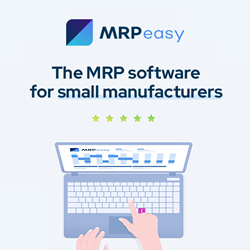Multi-Enterprise Platforms Foster More Efficient, Resilient Supply Chains

Amid continued disruptions and supply shortages, businesses are continuing to invest heavily in supply chain technology and innovation. A new report from MHI and Deloitte found that 90% of companies are planning to invest more than $1 million in supply chain technology this year, an increase of 24% over last year. Impressively, 38% of businesses plan to spend more than $10 million, up 19% from last year.
The advantages of supply chain management (SCM) software have been well documented: It creates enormous efficiencies and drives down costs by automating and expediting key processes, improving speed-to-market and limiting human errors. Most SCM systems, including ERPs, are enterprise-centric by nature, however. As supply chain models have evolved, brands and retailers need to support a collaborative and transparent exchange of information with multiple levels of suppliers and partners to see the maximum benefits from their systems.
That’s why more businesses are turning to multi-enterprise supply chain platforms, also known by Gartner as multienterprise collaboration networks. These cloud-based platforms enable a community of trading partners to coordinate and execute supply chain processes that extend across multiple enterprises, providing end-to-end visibility and enhancing collaboration between businesses and their suppliers while enabling progress on ESG goals. By facilitating the exchange of real-time data across a network of supply chain partners, they help businesses more quickly identify, select, and onboard suppliers, allowing companies to build overtime more agile, efficient supply chains.
Digitalization with a multi-enterprise platform creates visibility into prices, supply bases, and costs, enabling predictive sourcing and allowing buyers to negotiate more transparent agreements. When brands and retailers have visibility into sources and suppliers new to their supplier network, they’re better able to mix and match materials during the specification and procurement process. This visibility is key to sourcing competitively, especially for businesses that are geographically diversifying their supplier bases or branching out into new product categories.
What’s most exciting about multi-enterprise platforms is their functionality is constantly growing, so they evolve along with the challenges of the supply chain. These platforms are continually introducing new efficiencies and new capabilities, leveraging AI and business intelligence to better identify strategic opportunities for sourcing departments. The leading multi-enterprise platforms create enormous efficiencies through real-time visibility, keeping all supply chain processes and departments aligned and enabling dramatically reduced lead times.
Building Resiliency Must Also Include ESG Considerations
By providing full transparency into the Nth tier of a company’s supply chain, multi-enterprise platforms are also imperative for implementing ESG best practices while maximizing efficiency.
As consumers and governments alike are scrutinizing the social and environmental impact of products like never before, it’s not enough for brands and retailers to rely solely on an ERP or a PLM, as advantageous as those systems are. Businesses need a platform that can serve as a true control tower that uses both internal data as well as data from an interconnected community to drive real-time decision execution even after a product is designed and developed. They also need to ensure they’re sourcing as responsibly as possible.
Under sweeping new laws like the United States’ Uyghur Forced Labor Prevention Act and the German Supply Chain Act, customs and border protection agencies can withhold the release of merchandise until digital documentation can be presented which clearly illustrates all the supply chain entities that are connected to a specific purchase order. This is only possible if your platform is capable of being the system of record for all actors in your supply chain as well as being your purchase order follow tool and your central product data repository.
In response to these laws, my company TradeBeyond has seen a significant surge of interest from brands and retailers for our overall multi-enterprise platform, and in particular for its supply chain mapping and chain of custody management features, which help safeguard against lengthy detainments and possible heavy fines while enabling businesses to source to the highest standards of responsibility. They also enable businesses to more accurately back up the sustainability claims they make about their products, which is essential as regulations have pushed back against greenwashing.
Sourcing more sustainable, independently labeled raw materials has become a strategic imperative for leading brands, retailers, and manufacturers seeking to reduce the environmental footprint of their products and reduce exposure to environmental and social risks within the supply chain. The leaders in this space have already recognized the importance of supply chain management systems that can support those initiatives by integrating with and working closely with partners in this space. By integrating with sustainability databases like amfori, the Higg Index, and WRAP, supply chain platforms can turn those insights into actions and introduce safeguards that prevent them from sourcing from high-risk vendors or falling short of their environmental standards.
In an era defined by vast disruptions, heightened scrutiny, and growing global interconnectivity, supply chain resilience is more than just a buzzword—it's a business imperative. By providing unparalleled visibility and collaboration across a myriad of partners, multi-enterprise platforms enable the most efficient, comprehensive approach to supply chain management while ensuring brands and retailers live up to consumers’ highest standards of responsibility.
Eric Linxwiler is Senior Vice President of TradeBeyond. He has over 30 years of experience in enterprise software and cloud-based platform companies with a specialty in supply chain optimization and workflow management. Contact him at eric.linxwiler@tradebeyond.com.
Comments (0)
This post does not have any comments. Be the first to leave a comment below.
Featured Product

